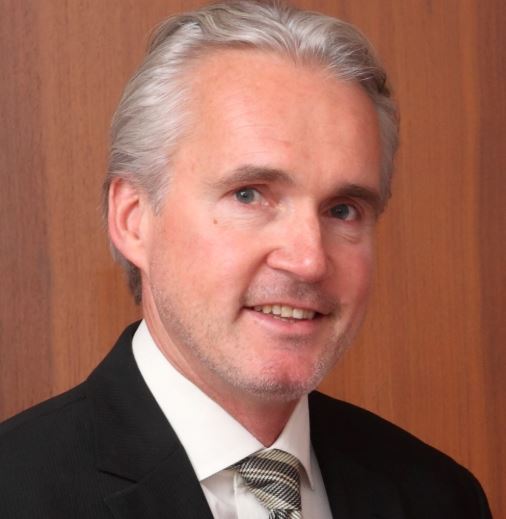Why the recruitment sector needs to consider mental health issues in mining
- Wellbeing

A recent poll by Mining People International (MPi) revealed that mental health issues continue to plague staff working in the fly-in, fly-out (FIFO) mining sector, which pose some significant repercussions for the recruitment sector.
This blog post was originally published on The Brief and is republished here with permission.
A recent poll by Mining People International (MPi) revealed that mental health issues continue to plague staff working in the fly-in, fly-out (FIFO) mining sector, which pose some significant repercussions for the recruitment sector.
it is no secret that awareness is rapidly increasing about the impact of mental health issues on individuals and the organisations they work for and this is notably present in the FIFO workforce, many of whom are seduced by the promise of big money.

To find out exactly what was going on and what the recruitment industry should or could do about it, Steve Heather, MD of MPi, recently ran a poll asking the simple question: How does the mining industry handle mental health?

It was undertaken after one of MPi’s senior consultants, Gail Rogers, read a story about the government further delaying the implementation of recommendations which followed an inquiry into the issue.
There were 130 respondents to the poll representing a large cross-section of those working within the sector.
“We thought the matter needed to be brought to the attention of the people who are on the ground,” Heather said. “MPi has a huge audience of people who work, or have worked, in the mining industry – some 16,000 people – and we thought connecting with them was a good way to highlight the problem and also to let people know they are not alone.”
Heather said there were many surprising findings from the poll, not least of all responses which demonstrated the emotional toll the issue has taken on some. Some notable submissions to the poll were from:
- One respondent, in a senior role, had worked directly with four miners who had committed suicide on site, which had a devastating impact on his own mental health;
- A response from one who said: “Those who are suicidal or stressed...are not suited to the job or have gotten too greedy and got into too much debt and now they can’t handle it”;
- One miner who said they resigned from the sector, despite being well-paid and relatively happy because they had had enough of the FIFO lifestyle
- One response which said money spent on inquiries into the mental health of miners was a waste of money and “why not just leave the industry for those who like the isolation and enjoy it?’;
- One person who said they suffer from PTSD, depression and anxiety and have found that “all these companies that banner being all about helping mental health and having so much support to help people, in my experience, frankly don’t care”.
“What really surprised us was the emotion in the responses,” he said. “These issues affect people deeply, not just at the time they are experiencing them; they continue to be affected by them and when you give people an opportunity to speak, boy do they speak!
“Some of those who wrote were dealing with the impacts of suicide, for example. That continues well after the event. It is deeply traumatic for people.” Heather said that while many people continue to be attracted to the financially lucrative world that a job in Australia’s mining sector can be, they would do well to consider the social, emotional and mental impacts of FIFO jobs before applying.
“If money is the only motivator, then the reality of a FIFO lifestyle is going to be really tough for some people,” he said.
“We see a lot of people gear themselves up with debt, they don’t save enough and then become addicted to a high spending lifestyle, leaving them feeling trapped.”
Rogers, who initiated the poll said isolation proved to be the biggest issue for many FIFO workers.
“Socially, it’s the isolation that gets people, being away from established networks, missing events,” she said. “And then there is the lack of personal space, especially in ‘hot bedding’ situations [where a number of staff utilise the same sleeping quarters when off shift]. Some sites have an almost institutional feel.”
One in four Australians are expected to experience a mental health illness during their lifetime and according to the poll, the most commonly reported mental health issue facing those working in Australia’s mining sector continues to be depression.
Rogers said most mining companies now provided Employee Assistance Programs (EAPs); some have trained mental health first aid officers and others still offer lifestyle coaches.
A popular initiative, Rogers said, was open site days where family can visit staff working on site to see where their family member lives, works, eats and sleeps.
In terms of how the mining industry addresses the reality that mental health issues are a factor for some of their FIFO staff, Heather said: “While there have been many pieces of research, reviews and guidelines issued, until very recently there appeared to be little in the way of a coordinated industry-wide approach to this.”
“Some companies are doing really great work, however, unless there is legislation similar to physical health and safety, there will always be companies that do nothing about the issue of mental health,” he said. “Compliance is a strong motivator.
Mental Health, Mining And Recruitment
“We have a responsibility to speak honestly and openly with candidates for FIFO jobs about the potential mental health toll such a position can have on an individual – and by consequence, the organisation they are working for,” he said.
Heather said it would be unreasonable to place the onus of responsibility for the mental health of FIFO staff on recruitment consultants and agencies, but there were certainly steps which can be taken to bring mental health into the conversation.
“Recruiters are not mental health experts and assessing people for suitability to work in isolated areas, away from home, is subjective; unless there is an assessment done by a medical expert,” Heather said.
“[As an industry, we should] pay attention to assessing people before they get into the industry to assess them for their suitability to the unique rigours of the industry.”
It is hard to tell someone they are not suitable for the mining industry due to some potential perceived personality mismatch, but simply making people aware of the pitfalls might force them to make a more active choice and plan better.
“Also, because the mining industry is unique, there are some loose parallels to elite sport where young, often lightly educated people find themselves making large sums of money early on in life. Suddenly it all ends or family pressure builds quickly, and they feel stuck.”
Rogers added: “Given mental illness can develop at any stage of anyone’s life, it is the responsibility of every person involved in the industry to better manage this issue.”
The way forward
Heather said the hope now was that mental health would be managed and considered by the mining sector in much the same way it treats the physical health of its staff. And again, the key he said, was opening up the conversation.
“Companies can create a culture that let’s employees know that there is no shame or stigma attached to mental illness and if they need support, the support is there,” he added.
“Companies can provide data as part of health and safety, and provide support personnel on site. They can be open and proactive in supplying information as part of the recruitment process and during inductions.
In terms of how we as an industry respond to this need to be aware of mental health issues for FIFO (and all) staff – and the consequent unsuitability of some candidates for these positions – we have to start by having this conversation ourselves. Unless we talk about it, we cannot hope to address it.
The facts:
- In September of 2015, the Minerals Council of Australia released its Blueprint for Mental Health and Well Being, saying it “reflects the mineral’s sectors recognition that industry has a key role to play in addressing mental illness and wellbeing”.
- Based on data for the general population, between 8,000 and 10,000 employees in the NSW minerals sector will experience a common mental illness such as anxiety depression or substance abuse disorders each year.
- Mental health issues cost the sector an estimated $250 million to $320 million a year due to lowered productivity, equating to $300,000 to $400,000 for an average site of 170 people.
- It is estimated that people from across all minerals employment categories are affected equally, from managers and professionals through to machinery operators and drivers.
Related articles

Self-care tips for anyone who works in mining
-
Wellbeing
-
Recruitment

The Silent Threat in Mining Recruitment: Why Candidates Don’t Hear Back
-
Wellbeing
-
Leadership
-
Recruitment
-
Career Services
-
Free Resources

Self-care tips for anyone who works in mining
- Wellbeing
- Recruitment

The Silent Threat in Mining Recruitment: Why Candidates Don’t Hear Back
- Wellbeing
- Leadership
- Recruitment
- Career Services
- Free Resources